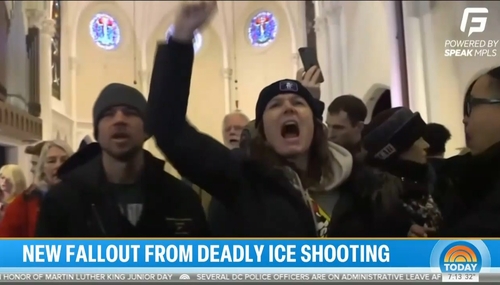
The front-page teaser headline for today's front page Washington Post article on the Supreme Court's CO2 ruling (emphases below are mine):
Court: EPA Violated Clean Air Act
Supreme Court rebukes Bush administration for refusing to regulate greenhouse gas emissions.
The link takes readers to today's front page article by Robert Barnes and Juliet Eilperin, "High Court Faults EPA Inaction on Emissions."
But both headlines not only skew the issue that was before the Court -- turning a legal matter into a political drama, and making the Supreme Court into a veritable high court of climate science -- they mislead readers about the actual finding of the Court's majority.
I'm no fan of the majority's reasoning or their ruling, but as Barnes and Eilperin themselves report deep in their article, Justice John Paul Stevens, writing for the majority, noted that "We need not and do not reach the question" of whether the EPA "must make an endangerment finding." In other words, the ruling is not some stern Al Gore-like command for the EPA to regulate carbon dioxide emissions.
Indeed, while the scientific geniuses in the Court majority in Commonwealth of Massachusetts v. EPA did hold that carbon dioxide may be defined as a pollutant under the Clean Air Act and hence may result in future EPA regulation, the ruling is not a rebuke to the Bush, and Clinton, administrations* for years of non-regulation.
A better teaser headline would be "Court Broadens Clean Air Act's Reach," which is what the ruling will likely do as more lawsuits follow from the Court's precedent.
*"The case dates from 1999, when the International Center for Technology Assessment and other groups petitioned the EPA to set standards for greenhouse gas emissions for new vehicles," Barnes and Eilperin reported.
That of course means that the case originated during the Clinton administration, and that the Bush administration followed the Clinton policy of non-classification and non-regulation of CO2 as a pollutant.
UPDATE: Juliet Eilperin conducted a live chat that concluded a few minutes ago. In her first question, she clarifies exactly what the ruling does:
College Park, Md.: Will the court's decision force the EPA to regulate greenhouse gases or will it force the EPA to reconsider regulating GGs? Also, if the EPA does end up regulating GGs, will that make the currently proposed global warming bills in Congress irrelevant?
Juliet Eilperin: That's a good question. It will force EPA to consider whether to regulate greenhouse gases, but the ruling will not force the agency to actually impose mandatory limits.
This decision will not halt what's happening in Congress-in fact, it will likely serve as an impetus for congressional action since most of the parties involved, including electric utilities and automakers, don't want the EPA to come up with a system on its own. They would prefer for Congress to craft a solution, so that's where everyone's focus will be in the months to come.




